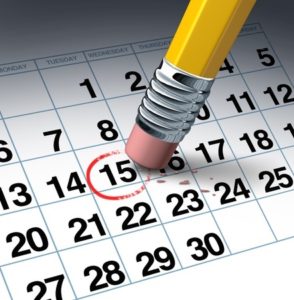 Apparently everyone does want to talk about periods. I am getting great feedback and lots of questions about what is healthy and what needs some work. I hope that you are feeling empowered either by knowing that you have a healthy cycle or that you too can improve your health.
Apparently everyone does want to talk about periods. I am getting great feedback and lots of questions about what is healthy and what needs some work. I hope that you are feeling empowered either by knowing that you have a healthy cycle or that you too can improve your health.
Frequency
This is easy. The body loves to be between 28-30 days. But what is actually involved in that counting? Let’s do some math here. Say you begin bleeding on November 1st. That is day one. You experience a temperature rise on Day 14, ovulation day. And you bleed again on November 29th. That is a 28-day cycle. You don’t count the 29th for the month, because you will count it next month. You do count all days of bleeding.
Short Cycles
Anything below 26 days is too short and suggestive of too much heat in the system or an inability for the body to hold the period back at the end due to weakness. The first problem might be associated with heavy, fast bleeding that is bright red and maybe a little thick and smelly. The second might be associated with fatigue, pelvic floor prolapse, loose stools and a loss of appetite.
Long Cycles
Long cycles are anything over 35 days. From one month to the next you might have a stressful day on days 14 and 15 and the body doesn’t feel safe enough to ovulate. But when things settle down again it should get down to business. After 35 days we’ve got issues that need addressing. Long cycles range in the 35 days to months or years range. There can be numerous reasons for long cycles, but the big two are blood deficiency and stagnation. Blood deficiency is a common one and will show itself with very light periods, dizziness, fatigue, poor vision, feeling cold, and/or muscle cramps. Stagnation of blood and qi in the reproductive organs will usually have painful periods, big mood swings and dark, clotted periods, painful PMS.
Last week when we talked about Blood we discussed bleeding duration, so in this installment I want to talk about lifetime duration instead.
Numbers in Chinese Medicine
Average age of menarche (first period) 12-14
Average age of menopause (last period) 49-52
In Chinese Medicine women run on cycles of 7: at 7 you get adult teeth, at 14 you get your period, at 21 you become an adult, at 28 you have babies, at 35 you finish having babies, at 42 your career takes off (okay I made up that one), at 49 you start going through menopause.
Everything right close to that time frame is normal. What isn’t normal is peri-menopausal symptoms at 37 or 41 or 45. If they come on that early let’s get your body stronger and healthier and buy you a few more years.
Why postpone menopause if you can?
For everyone under the age of 20 the idea of early menopause sounds heavenly. To everyone over the age of 30 it sounds more daunting. What are the risks of going through menopause too early? Western Medicine will tell you early menopause increases your chances of heart disease and osteoporosis. Chinese Medicine will tell you that early menopause is proof enough that the body is already in distress and needs strengthening. You don’t have to deal with 15 years of hot flashes or night sweats and you don’t have to go on replacement hormones. There is another option. Acupuncture and herbs are known for restarting periods after long spells, even after early menopause. The earlier you catch it the better. Bringing a period back 10 years after it disappeared is obviously harder than amenorrhea (no period) for 6 months.
Other posts in this series
Week Three: Duration and Frequency
Week Six: Female Intuition During the Cycle
Copyright: lightwise / 123RF Stock Photo